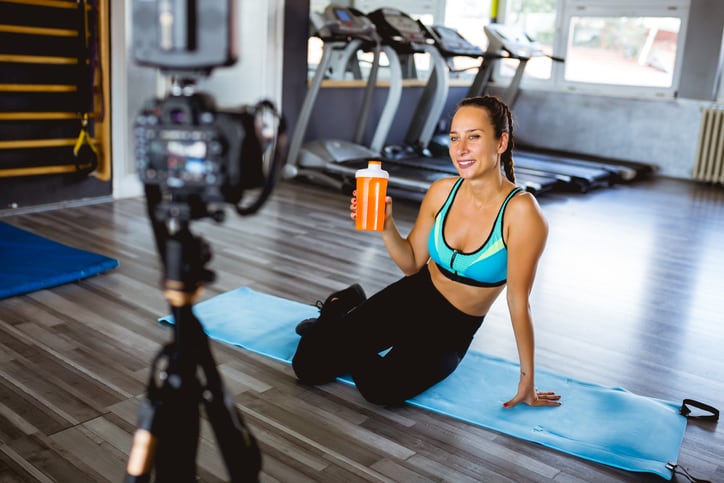But let’s take a moment to think about the people whose jobs depend on their ability to encourage people to make diet changes based on these rudimentary principals (and other expertise).
In trying to get the world to eat better and stay healthier, nutritionists, dietitians and public health professionals have a serious task on their hands.
The trouble is, these sensible messages are often drowned out.
‘Influencers’ incoming!
Now let’s add to the mix a huge hoard of online ‘influencers’ willing and ready to throw the validity of these principals into question by publishing images of themselves touting the latest ‘healthy’ tat.
From weight loss pills and ‘antioxidant’ face masks, to vitamin injections and butt implants, there’s a huge wealth of dross gaining more interest from ‘health-conscious’ consumers than the majority of humble nutritionists’ and dietitians’ post.
In this world where people spend about two seconds taking a photo and the next two hours editing it and deciding what hashtags will reel in the highest number of views from strangers, the term ‘sell-out’ seems to have almost disappeared from our vocabulary.
We used this term quite regularly in the not too distant past to refer to someone who compromised their own integrity for the sake of payment but nowadays this willingness to associate ones-self with places, products, brands, or anything else commodifiable, is considered a good use of social media, or even a great show of entrepreneurship.
In a recent phone call with dietitian Ursula Arens, I felt she summed up the frustration quite succinctly.
“Dietitians feel frustrated they are the ones that have the science degree and have done four years of university chewing through huge amounts of science and along comes a 17-year-old blogger who slices open an avocado and says ‘this is good for skin’ and they get millions of views, 'likes' and their message is shared a thousand times.”
And many people using the internet today will see the number of ‘likes’ and ‘shares’ as a number by which to rank a post’s worth, and as such, is that also a number by which to rank that post’s validity?
Depressingly, when it comes to health advice it seems that stardom, in many people’s minds, has more notoriety than knowledge.
Making good nutrition ‘sexy’
I recently read a thought-provoking blog by Andrew Doherty, a dietitian from the US, pointing out that most people already know the basics of good nutrition, yet 90% of adults don’t meet these recommendations.
Therefore he says it’s not a matter of education or understanding but it’s a matter of the environment and systems from which consumers are getting their food.
He therefore questions whether he’d be better placed to have a real impact on people’s health if he were involved in policy making, marketing or even app building, rather than giving advice.
“If it’s not a matter of educating people about the upper tolerable limits of potassium, but rather providing people with the opportunities to be self sufficient for their foods ,wouldn’t a degree in community policy/planning be better? Yeah probably.
“What about a degree in marketing to understand how to make vegetables sexy? Also probably suitable. A software engineering degree to create apps that help consumers make nutritious choices in the grocery store? Yup that would work too.”
Sympathising with Doherty's view, Arens argues it’s time to ‘audit and assess the whole terrain of professional nutrition guidance’.
She points out that the biggest challenge for dietitians, as always, is creating appealing ways for people to integrate these somewhat dull messages into their everyday lives.
So perhaps these platforms can be utilised to communicate these ideas in a more enticing way?
She notes that some younger dietitians who are used to using these platforms have been very good at interjecting mis-informative posts and have managed to deliver their message to new audiences who need it most, via social media.
So these platforms have their upsides, of course, but generally people will always be more easily seduced by quick fixes and eccentric diet fad ideas, rather than the old ‘eat 5-7 fruit and veg a day’, ‘reduce your sugar intake’ and ‘consistency over time’ messages.
Anyone who reckons they've worked out how to make those messages 'sexy', let me know.

